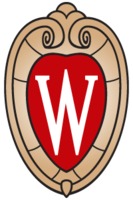Deputy UW-Madison Athletics Director Chris McIntosh says the university needs to continue to fund sports, despite economic woes befalling colleges across the country.
“Much has been written about our financial challenges, and even with the potential of a modified season, it calls attention to the reality of our financial model,” McIntosh said. “Football underwrites the cost of providing opportunity to over 800 young people.”
He told a Madison Rotary Club meeting Wednesday that the vast majority of UW-Madison’s sports revenue comes from the football program.
UW-Madison athletics is focused on creating future opportunities by providing student athletes with a high quality education and resources to build bridges for their futures, McIntosh said. He added that they do that while providing more revenue than any other department.
He said student athletes have an impressive cumulative GPA of roughly 3.2 in 84 different majors. Three hundred and eight athletes were named to the dean’s list last year.
The vast majority of student athletes become employed full-time, part-time or continue their education after finishing their undergraduate degrees as Badgers, he said.
Ninety-five percent of graduates last year had a positive career outcome, of which 69 percent were employed full-time. Eighteen percent continued on to advanced degrees and 8 percent saw part-time or military service.
Ninety-six students of color had positive career outcomes, of which 77 percent were employed full-time. Twelve percent sought advanced degrees and 8 percent were part-time, volunteers or in the military.
And 100 percent of Wisconsin residents had a positive career outcome, McIntosh added.
Student athlete resources at UW-Madison have led to student success stories, he said. Some of these include a department of inclusion and engagement, alumni association, clinical and sports psychologists, and a career and leadership team.
“The opportunity that our student athletes have to grow isn’t limited to those support services; it’s centered around the relationship they have with their coaches,” McIntosh said, referring to Athletic Director Barry Alvarez. “Coach Alvarez has always placed an emphasis on the relationship that the coaches have with their student athletes and the fact that they care. This mentoring of young people that provides an impact and creates the opportunity for student athletes to go beyond what they thought was possible, it doesn’t take place only in the preparation for competition on the big stage, it takes place in nuanced conversations on and off the field, in the meeting rooms and in the locker rooms.”
-By Adam Kelnhofer
WisBusiness.com






